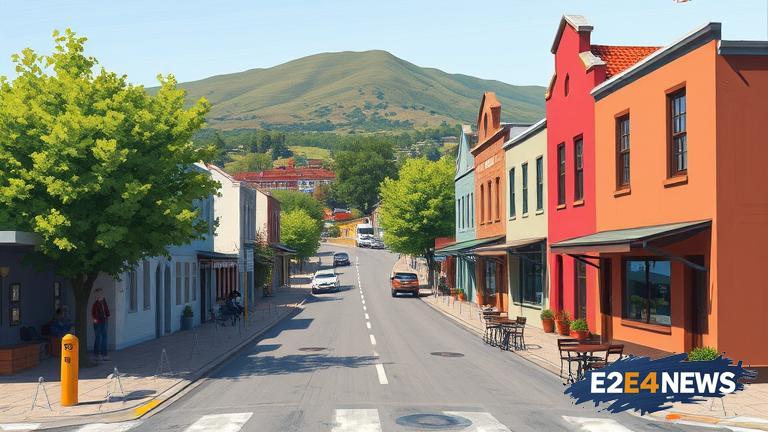The Drakenstein Municipality, located in the Western Cape province of South Africa, has embarked on an ambitious urban development project aimed at transforming the region into a thriving and sustainable hub. The project, facilitated by the Development Bank of Southern Africa (DBSA), seeks to address the municipality’s development challenges and create opportunities for economic growth, job creation, and improved living standards. The initiative is part of the DBSA’s broader efforts to support urban development in South Africa, with a focus on promoting integrated and inclusive urban planning. The project involves the development of key infrastructure, including roads, public transportation systems, and community facilities, to enhance the overall quality of life for residents. Additionally, the project aims to stimulate economic growth by supporting local businesses, promoting entrepreneurship, and attracting investment to the region. The DBSA is providing technical and financial assistance to the municipality to ensure the successful implementation of the project. The project is expected to have a positive impact on the local economy, with the creation of new job opportunities and the stimulation of economic activity. The municipality is also working to improve the delivery of basic services, such as water, sanitation, and electricity, to residents. The project is being implemented in phases, with the first phase focusing on the development of key infrastructure and the second phase focusing on the implementation of economic development initiatives. The DBSA is working closely with the municipality to ensure that the project is aligned with the municipality’s integrated development plan and the national government’s urban development policies. The project is also being implemented in consultation with local stakeholders, including residents, businesses, and community organizations. The DBSA is providing training and capacity-building programs to municipal officials to ensure that they have the necessary skills and expertise to manage and implement the project effectively. The project is expected to be completed over a period of several years, with regular monitoring and evaluation to ensure that it is on track to meet its objectives. The DBSA is committed to supporting the municipality throughout the project implementation period, providing technical and financial assistance as needed. The project is an example of the DBSA’s commitment to supporting urban development in South Africa and promoting sustainable and inclusive economic growth. The project is also aligned with the United Nations’ Sustainable Development Goals (SDGs), particularly Goal 11, which focuses on making cities and human settlements inclusive, safe, resilient, and sustainable. The DBSA is working to promote the project as a model for urban development in South Africa, with the potential for replication in other municipalities. The project has the potential to make a significant contribution to the economic and social development of the region, and the DBSA is committed to ensuring its success. The municipality is also exploring opportunities for private sector investment in the project, with the potential for public-private partnerships to support the development of key infrastructure and services. The project is an example of the importance of collaboration and partnership in achieving sustainable urban development, and the DBSA is committed to working with all stakeholders to ensure its success. The DBSA is also providing support to the municipality to develop a comprehensive urban development strategy, which will guide the implementation of the project and ensure that it is aligned with the municipality’s long-term development goals. The strategy will also identify opportunities for innovation and entrepreneurship, and provide a framework for the municipality to engage with the private sector and other stakeholders to support the project. The project is expected to have a positive impact on the environment, with the implementation of sustainable urban planning principles and the promotion of green infrastructure. The DBSA is working to ensure that the project is environmentally sustainable, with the implementation of measures to reduce the municipality’s carbon footprint and promote the use of renewable energy. The project is an example of the DBSA’s commitment to supporting sustainable urban development in South Africa, and its potential to contribute to the country’s economic and social development.
